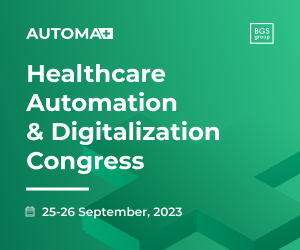Artificial intelligence (AI) has evolved beyond a simple buzzword; it is reshaping industries and redefining how we interact with technology, organizations, and each other. In behavioral healthcare, the integration of AI brings exciting possibilities but also significant challenges. As the healthcare AI market, estimated at USD 11 billion in 2021, surges toward a projected USD 187 billion by 2030, it becomes critical to ensure that these advancements enhance rather than erode the essential human connection between patients and providers. Maintaining empathy, connection, and ethical considerations in care as we introduce AI into behavioral healthcare is no longer just a goal—it is a responsibility.
Understanding AI with a Human Touch
The concept of “AI with a human touch” goes beyond data processing and efficiency. It represents a commitment to developing systems that support and enhance human capabilities while respecting emotional and ethical dimensions. In behavioral healthcare, where empathy, trust, and rapport are cornerstones of successful treatment, this human-centered approach is indispensable. By creating AI that can interpret emotional cues, prioritize transparency, and adapt to cultural nuances, we can build systems that complement the human strengths required in behavioral healthcare.
Addressing a National Crisis and Workforce Challenges with AI
The United States is facing a mental health crisis with escalating levels of unmet behavioral health needs across all age groups. This crisis is exacerbated by a constrained behavioral health workforce, plagued by supply and distribution challenges. Substantial shortages of addiction counselors, marriage and family therapists, mental health counselors, psychologists, and psychiatrists are projected by 2036. Currently, behavioral health services are difficult to access due to these provider shortages, with the national average wait time for services at a staggering 48 days. If we continue on this trajectory, access issues are likely to worsen as demand increases.
AI offers a potential solution to alleviate the burden on behavioral health professionals, helping to mitigate workforce shortages and reduce long wait times. Through ambient listening, natural language processing, and the use of large language models, AI can manage a significant portion of administrative tasks that often detract from face-to-face patient care. By reducing documentation time, clinicians can spend more time in meaningful interactions with patients, fostering a therapeutic environment that prioritizes human connection. This shift not only improves the quality of care but also helps reduce burnout, which contributes to high turnover in the behavioral health field.
Human-Centric AI: A Necessity in Behavioral Healthcare
A human-centered approach to AI integration in healthcare addresses fundamental issues that shape both patient and provider experience. Behavioral healthcare stands to benefit from AI systems designed to address transparency, empathy, and ethical alignment. Transparent AI systems allow patients to understand how decisions are made, fostering trust between them and their providers. For example, if an AI-powered tool recommends a specific intervention based on patient data, explaining the rationale behind this suggestion can help patients feel more informed and in control of their care.
Empathy is another crucial element. AI can play a supportive role by analyzing a patient’s words, tone, and context, helping clinicians identify emotional distress or behavioral changes that might otherwise go unnoticed. In these cases, AI tools can suggest timely interventions, enabling clinicians to provide compassionate support when it is needed most.
Ethical considerations, such as minimizing bias and ensuring inclusivity, are also paramount. Human-centered AI in healthcare must be designed to recognize and address biases present in training data and to operate with a commitment to fairness, inclusivity, and privacy. Behavioral healthcare providers have an ethical duty to ensure that these systems serve all patients equitably, respecting diverse backgrounds and individual needs.
Real-World Applications of Human-Centered AI in Behavioral Healthcare
Some promising applications of human-centered AI are already emerging in behavioral healthcare. For example, predictive analytics tools, powered by sophisticated AI algorithms, can analyze patterns in patient data and identify those at high risk for crises such as overdose or suicide. By detecting subtle indicators of risk, these tools enable proactive interventions that can save lives. They serve as a complement to human judgment, allowing clinicians to wrap services around at-risk clients and prevent crises before they occur.
Similarly, AI-powered virtual health assistants can support patients managing chronic conditions, providing personalized guidance and emotional support while emphasizing wellness and holistic patient experiences. These assistants do not replace human interaction; instead, they allow healthcare providers to spend more time building rapport with patients, addressing individual needs, and creating a treatment environment that values human connection.
Challenges in Building Human-Centered AI
As with any transformative technology, developing AI with a human touch presents challenges. Bias and fairness are major concerns in AI development, particularly in healthcare, where AI systems must be designed to reflect the diversity of the populations they serve. To mitigate the risk of AI systems inheriting societal biases, continuous monitoring and improvement of algorithms are necessary.
Privacy remains another critical concern. AI systems in behavioral healthcare must gather context-sensitive information to deliver empathetic, personalized care while respecting data security and user consent. Striking a balance between data usage and privacy is essential to maintaining trust in AI-driven healthcare solutions.
Finally, accountability is key. As AI systems become more autonomous, defining clear responsibilities for AI deployment and impact on patient care is essential. Healthcare organizations must establish robust policies around AI to ensure these systems enhance rather than detract from human-centered care.
AI and Human Collaboration: Future Directions
Looking to the future, AI with a human touch is evolving from a tool into a true partner in care. This vision aligns with the rise of explainable AI, which strives to demystify machine decisions, providing users with clarity and control. To realize this vision, AI engineers are beginning to work alongside behavioral health professionals, psychologists, ethicists, and anthropologists to design systems that resonate with human values and behaviors.
In the years to come, we can expect to see AI systems that are not only more accurate but also more adaptable to cultural contexts and emotional subtleties. These systems will work synergistically with clinicians, enhancing our ability to understand, empathize, and respond effectively to patient needs.
A Vision of AI That Works for Us
In a world where AI is redefining what’s possible, preserving the human touch in behavioral healthcare is not just desirable—it’s essential. By integrating AI designed with empathy, fairness, and inclusivity into behavioral healthcare, we can create a future where technology enhances human life without sacrificing the core relationships that form the foundation of effective care. As we navigate this transformative era, let us commit to keeping the human spirit at the heart of our work, ensuring that AI serves as a positive, transformative force in the field of behavioral healthcare.
Citations:
Education I . 2023. Available: https://www.ibm.com/blog/the-benefits-of-ai-in-healthcare/
Health Resources and Services Administration. Workforce Projections [Dashboard]. U.S. Department of Health and Human Services. Published 2023. Accessed November 3, 2023: https://data.hrsa.gov/topics/health-workforce/workforce-projections
Lysaght T, Lim HY, Xafis V, Ngiam KY. AI-Assisted Decision-making in Healthcare: The Application of an Ethics Framework for Big Data in Health and Research. Asian Bioeth Rev. 2019 Sep 12;11(3):299-314. doi: 10.1007/s41649-019-00096-0. PMID: 33717318; PMCID: PMC7747260.
Lee EE, Torous J, De Choudhury M, Depp CA, Graham SA, Kim HC, Paulus MP, Krystal JH, Jeste DV. Artificial Intelligence for Mental Health Care: Clinical Applications, Barriers, Facilitators, and Artificial Wisdom. Biol Psychiatry Cogn Neurosci Neuroimaging. 2021 Sep;6(9):856-864. doi: 10.1016/j.bpsc.2021.02.001. Epub 2021 Feb 8. PMID: 33571718; PMCID: PMC8349367.
Mohanasundari SK, Kalpana M, Madhusudhan U, Vasanthkumar K, B R, Singh R, Vashishtha N, Bhatia V. Can Artificial Intelligence Replace the Unique Nursing Role? Cureus. 2023 Dec 27;15(12):e51150. doi: 10.7759/cureus.51150. PMID: 38283483; PMCID: PMC10811613.
Thakkar A, Gupta A, De Sousa A. Artificial intelligence in positive mental health: a narrative review. Front Digit Health. 2024 Mar 18;6:1280235. doi: 10.3389/fdgth.2024.1280235. PMID: 38562663; PMCID: PMC10982476.
The White House. FACT SHEET: President Biden to announce strategy to address our national mental health crisis, as part of unity agenda in his first state of the union. 2022. Accessed November 3, 2023: https://www.whitehouse.gov/briefing-room/statements-releases/2022/03/01/fact-sheet-president-biden-to-announce-strategy-to-address-our-national-mental-health-crisis-as-part-of-unity-agenda-in-his-first-state-of-the-union/
United States Government Accountability Office. Mental health care: Access challenges for covered consumers and relevant federal efforts. 2022. Accessed November 3, 2023: https://www.gao.gov/assets/gao-22-104597.pdf












